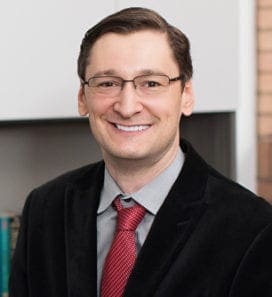Faculty

Andrei Irimia, PhD
Associate Professor of Gerontology, Quantitative & Computational Biology, Biomedical Engineering and Neuroscience
Education
- Postdoctoral Scholar, multimodal neuroimaging, UCLA, 2013
- Postdoctoral Scholar, human brain mapping, UC San Diego, 2010
- MS, PhD, Biological Physics, Vanderbilt University, 2007
- MS, Computer science, Vanderbilt University, 2004
- BA, Computer Science and Mathematics, Lipscomb University, 2002
Research
- Brain aging and neurodegeneration
- Alzheimer’s disease and related dementias
- Interpretable deep learning
- Neurogenetics of aging
Affiliations
- Faculty Affiliate, USC Neuroscience Graduate Program
Overview
Andrei Irimia, PhD, is a biogerontologist and computational neurobiologist studying the effects of genetic, epigenetic, and environmental factors on brain aging. His laboratory uses interpretable deep learning, genomics, and brain imaging to identify and characterize novel risk factors for Alzheimer’s disease and related dementias (ADRD). He also studies accelerated aging, neurovascular calcification, and brain injury as risk factors for ADRD.
Email: irimia[at]usc[dot]edu
Office Location: GER 228C
Office Phone: (213) 740-1710
Lab: The Irimia Lab

